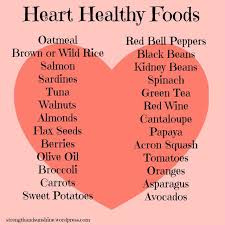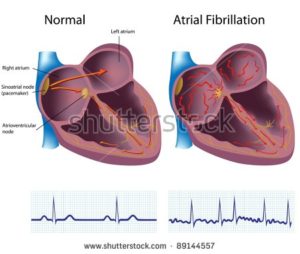
Diagnosed with Cancer? Your two greatest challenges are understanding cancer and understanding possible side effects from chemo and radiation. Knowledge is Power!
Learn about conventional, complementary, and integrative therapies.
Dealing with treatment side effects? Learn about evidence-based therapies to alleviate your symptoms.
Click the orange button to the right to learn more.
- You are here:
- Home »
- Blog »
- side effects ID and prevention »
- Heart Health- Mediterranean Diet
Heart Health- Mediterranean Diet

Heart health is my second highest priority second only to living cancer-free. Nutrition makes a difference for both of those priorities. I’m not saying that what you eat is a silver bullet fix-it for people with heart risks. I’m saying that evidence-based but non-conventional therapies should be a piece of your therapy plan if your heart health is compromised.
Let me be more specific.
I am a long-term cancer survivor who sustained chemotherapy-induced cardiomyopathy including atrial fibrillation fully 15 years after my induction chemo and autologous stem cell transplant. Every time I meet with a cardiologist, I am pushed to take conventional heart medications. No one ever talks to me about non-toxic, lifestyle heart health therapies.
The blog post linked above talking about cardiomyopathy explains the nutritional supplementation that I take. When it comes to nutrition, the diet I focus on is the Mediterranean Diet. It really isn’t that complicated:
- Lots of Fruits and Veggies-
- No meat (for me anyway)
- Pasta w/ red sauce
- Whole Grains-
- Olive Oil-
- Beans-
- Nuts-
Add daily, moderate exercise, the nutritional supplementation in the post above and my heart health, according to annual echocardiograms, are stable.
According to U.S. News and World Report
Mediterranean Diet is ranked:
-
#1
-
#1
-
#21
-
#1
-
#1
-
#5
-
#2
-
#2
-
#1
-
#3
Are you a cancer survivor? Do you have heart issues? Scroll down the page, post a question or a comment and I will reply to you ASAP.
Thank you-
David Emerson
- Cancer Survivor
- Cancer Coach
- Director PeopleBeatingCancer
Heart Health is a favorite topic of mine to write about
- Heart Disease- Everything you need for heart-health
- Heart Health & Multiple Myeloma
- Collagen-Skin, Muscle, Joint, Brain and Heart Health
- Evidence Heart Disease is “Weak” –
- PQQ, Anti-Cancer, Pro-Heart Health
- Cardiovascular Disease – Myeloma
Anti-Aging Mediterranean Diet
“Can you eat your way to a longer life? Well, yes and no. Certain dietary patterns are associated with lower risks for coronary heart disease, cancer, and other diseases…z’
Some Diets Better Than Others for Heart Protection
“A new analysis of randomized trials suggests that the Mediterranean diet and low-fat diets probably reduce the risk of death and nonfatal myocardial infarction (MI) in adults at increased risk for cardiovascular disease (CVD), while the Mediterranean diet also likely reduces the risk of stroke…
“These findings with data presentations are extremely important for patients who are skeptical about the desirability of diet change…”
On an absolute basis (per 1000 over 5 years), the Mediterranean diet let to
- 17 fewer deaths from any cause,
- 13 fewer Cardio Vascular deaths,
- seven fewer strokes, and
- 17 fewer nonfatal MIs (heart attacks)…
Comparison of seven popular structured dietary programmes and risk of mortality and major cardiovascular events in patients at increased cardiovascular risk: systematic review and network meta-analysis
“Objective To determine the relative efficacy of structured named diet and health behaviour programmes (dietary programmes) for prevention of mortality and major cardiovascular events in patients at increased risk of cardiovascular disease…
Outcomes and measures All cause mortality, cardiovascular mortality, and individual cardiovascular events (stroke, non-fatal myocardial infarction, and unplanned cardiovascular interventions)…
Conclusions Moderate certainty evidence shows that programmes promoting Mediterranean and low fat diets, with or without physical activity or other interventions, reduce all cause mortality and non-fatal myocardial infarction in patients with increased cardiovascular risk. Mediterranean programmes are also likely to reduce stroke risk. Generally, other named dietary programmes were not superior to minimal intervention…”
Preclinical and clinical evidence for the role of resveratrol in the treatment of cardiovascular diseases.
“Cardiovascular disease is the leading cause of death worldwide. Despite advancements in diagnosis and treatment of cardiovascular disease, the incidence of cardiovascular disease is still rising. Therefore, new lines of medications are needed to treat the growing population of patients with cardiovascular disease.
Although the majority of the existing pharmacotherapies for cardiovascular disease are synthesized molecules, natural compounds, such as resveratrol, are also being tested. Resveratrol is a non-flavonoid polyphenolic compound, which has several biological effects. Preclinical studies have provided convincing evidence that resveratrol has beneficial effects in animal models of hypertension, atherosclerosis, stroke, ischemic heart disease, arrhythmia, chemotherapy-induced cardiotoxicity, diabetic cardiomyopathy, and heart failure…
Although not fully delineated, some of the beneficial cardiovascular effects of resveratrol are mediated through activation of silent information regulator 1 (SIRT1), AMP-activated protein kinase (AMPK), and endogenous anti-oxidant enzymes. In addition to these pathways, the anti-inflammatory, anti-platelet, insulin-sensitizing, and lipid-lowering properties of resveratrol contribute to its beneficial cardiovascular effects.
Despite the promise of resveratrol as a treatment for numerous cardiovascular diseases, the clinical studies for resveratrol are still limited. In addition, several conflicting results from trials have been reported, which demonstrates the challenges that face the translation of the exciting preclinical findings to humans. Herein, we will review much of the preclinical and clinical evidence for the role of resveratrol in the treatment of cardiovascular disease and provide information about the physiological and molecular signaling mechanisms involved. This article is part of a Special Issue entitled: Resveratrol: Challenges in translating pre-clinical findings to improved patient outcomes.”


